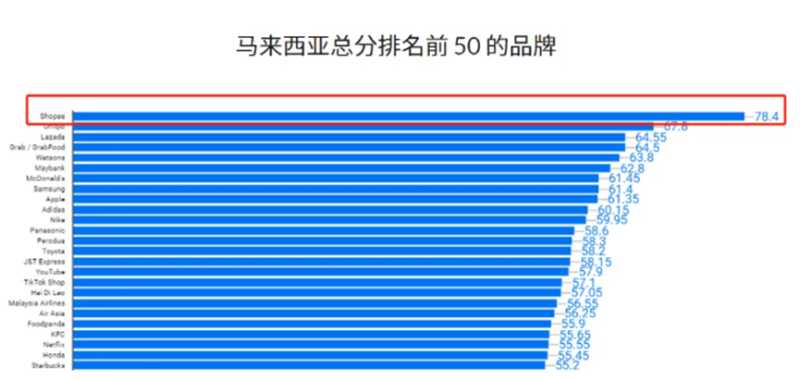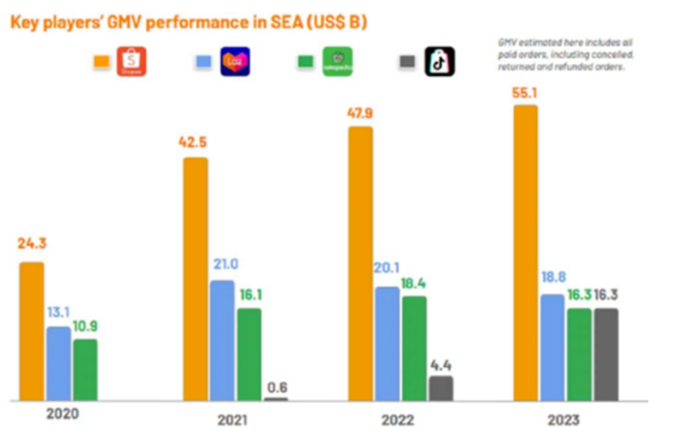There's no doubt that as a Southeast Asian e-commerce giant, Shopee's appeal to consumers is significant.
Recent reports indicate that market research and polling company Ipsos has released new data on the landscape and the non-cash payment economy in Malaysia. The data shows that with the acceleration of internet development and the increasing prevalence of e-commerce infrastructure, local consumers in Malaysia are becoming increasingly adept at using non-cash services for online shopping, and the online retail industry is experiencing unprecedented growth as a result.
Specifically, Ipsos data points out that over the past six months, about 50% of Malaysians have shopped on e-commerce platforms, up from 39% in 2023, with the popularity of online shopping continuing to rise. Among the most popular product categories for Malaysian online shoppers are fashion accessories, groceries, and electronic devices.
In terms of market share, the Southeast Asian e-commerce titan Shopee maintains its leading position, with 72% of local consumers shopping on the platform in the past six months, a considerable gap from the second-place TikTok Shop (43%).
In fact, it's no surprise that Shopee is favored by Malaysian consumers. A recent report from Campaign on the Top 50 brands in Southeast Asia showed that in Malaysia, Shopee beat out a host of strong competitors, topping the consumer brand list with a high score of 78.4, becoming the most beloved brand among local consumers.

Data from multiple authoritative institutions confirm that Shopee's position in the Malaysian market is solid. However, as e-commerce competition intensifies, Shopee faces formidable rivals in Malaysia, with TikTok Shop being the most prominent among them.
Looking at the data from Ipsos, although Shopee remains the leader in the Malaysian market, its growth has slowed. The data indicates that the platform's market share has decreased by 6%. In contrast, TikTok Shop has achieved an 8% increase in market share, showing that competition at the top of the Malaysian e-commerce market is fierce.
It's worth noting that TikTok's momentum is not just a threat to Shopee's business in Malaysia. The "2024 Southeast Asia E-commerce Report" published by Momentum Works shows that in 2023, TikTok Shop's total merchandise transaction value in Southeast Asia reached $16.3 billion, a nearly fourfold increase from $4.4 billion in the same period of 2022. If we include Tokopedia's data, TikTok Shop's GMV has already surpassed Lazada to become the second-largest market player, with only Shopee standing between it and the top spot in Southeast Asia.

The Southeast Asian market has not yet formed an absolute monopoly, and it's uncertain when another dark horse might emerge. Shopee, which has held the top spot for years, cannot be taken lightly.
In 2023, when Shopee's parent company Sea achieved its first annual profit since going public, founder and CEO Forrest Li explicitly stated in an internal letter that they expect to continue making profits in 2024. The future will see renewed investment and a return to "full combat mode" to face competition.
One of Shopee's strategies to counter TikTok's offensive is to focus on developing live commerce. According to media reports, at the beginning of this year, Shopee Thailand set an ambitious e-commerce goal—to surpass e-commerce by providing upgraded services and to compete with the social commerce giant TikTok Shop in the field of live sales.
Original author: Kua Tong She
Source: https://www.dsb.cn/p/01jg0yc6s9ygpnw736xnm3p06n